Magic in Сhemistry lesson: entertaining scientific experiments for Nizhnekamsk schoolchildren
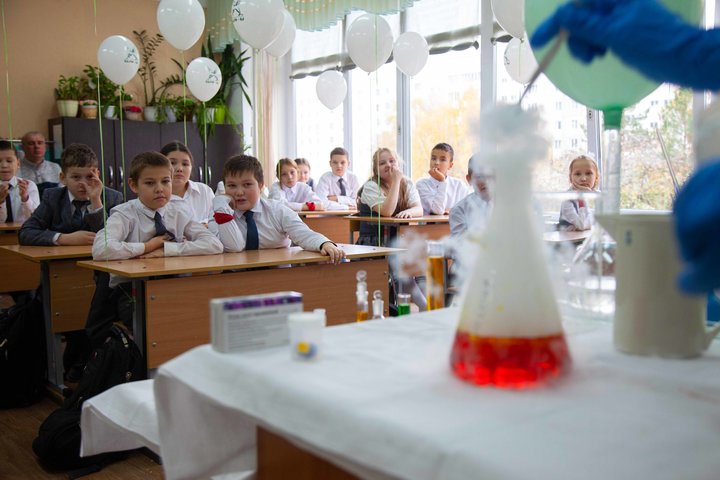
Year four students of School No. 16 in Nizhnekamsk now know what a toothpaste for elephants and the eruption of a volcano look like, who eats petroleum products and why you can't drown in salt water. The children took part in an entertaining environmental lesson organised by employees of TAIF-NK JSC. The chemical experiments were conducted by employees of a sanitary and industrial laboratory. Read about why it is so important to conserve water and what will help filter water at home in a report of Realnoe Vremya.
Water is life
An unusual lesson on environment was held for the students of year four students of School No. 16. The teachers were workers of an oil refinery. A special atmosphere in the classroom was created by balloons and multi-coloured glass flasks placed on the table.
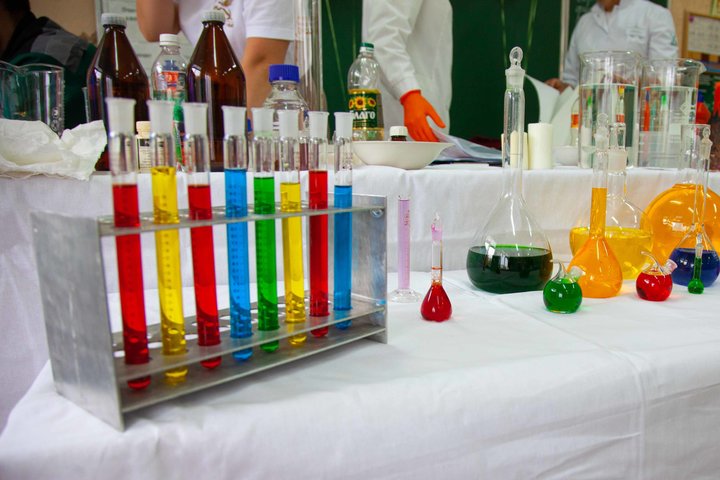
Alyona Mukharnikova was the first to speak was environmental engineer. She told the children about the importance of clean water for humans and nature:
“We all know that water is life. About 70% of our planet is covered with water resources. From space, our Earth looks blue, and it seems that there is enough water. But here's the problem — not all water is suitable for drinking. Most of the water is salt water from the seas and oceans. Another part of the water is frozen in glaciers or hovers in the air as steam. Some rivers and reservoirs are polluted. In order to drink water, it must first be purified, passed through filters,” Alyona Mukharnikova addressed the children.
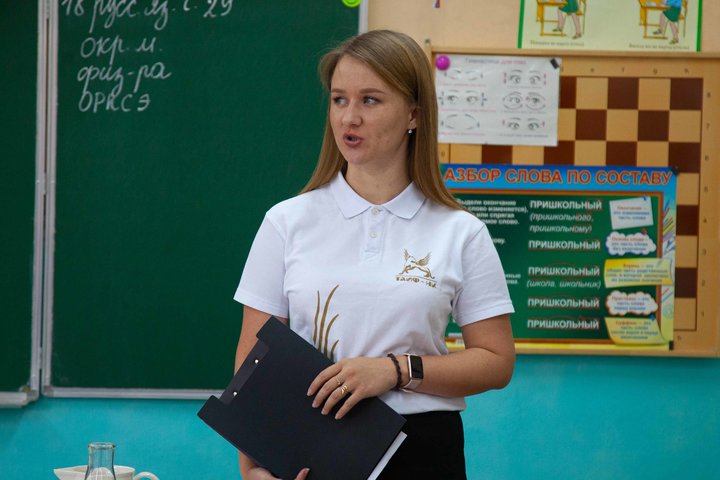
Head of the Sanitary and Industrial Laboratory Aida Akhmadullina added that although water is a simple substance, it has many mysteries:
“Scientists still study water discovering new facts about it. Did you know that we are also 70% water? If we want to be healthy, make our world a better place, we must take care of water resources. Water should be of high quality, clean, suitable for drinking and watering plants. And how can we determine the quality of water?” she asked the children.
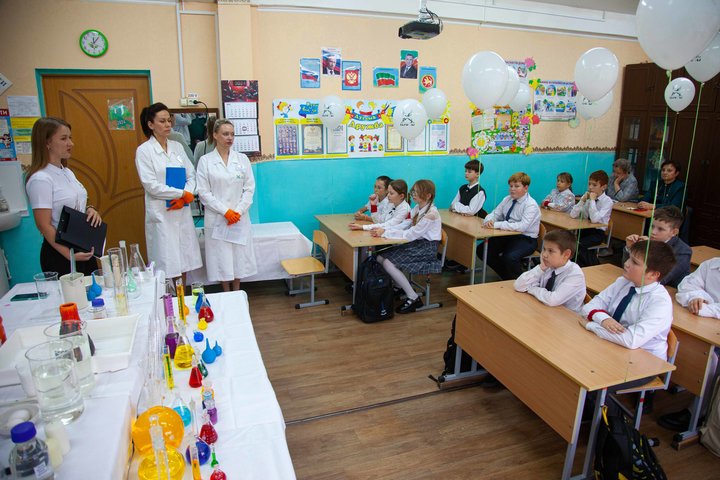
A sea of arms were raised in the classroom.
“By colour! By taste! By smell!” the children shouted altogether.
“Right. But there is a more reliable way — laboratory research. This is what our sanitary and industrial laboratory does. We study the properties, physical, biological, and chemical composition of water,” said Aida Akhmadullina.
9 visual experiments
And then the most interesting part began — chemical experiments. The company's employees showed the children how water changes from one state to another, changes density and colour.
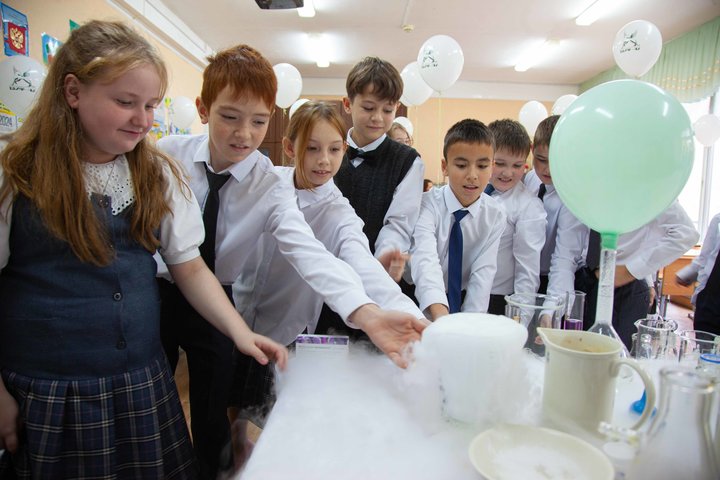
Each of the experiments surprised the children more and more. Here, a toothpaste for elephants appeared from a glass test tube, a volcano began to erupt nearby, a balloon stretched over a glass test tube filled itself with air, and the water in the glass changed colour several times.
In addition, the children saw with their own eyes microorganisms that eat oil products through a microscope. They live at the enterprise in the local wastewater treatment shop and participate in water purification at the plant.
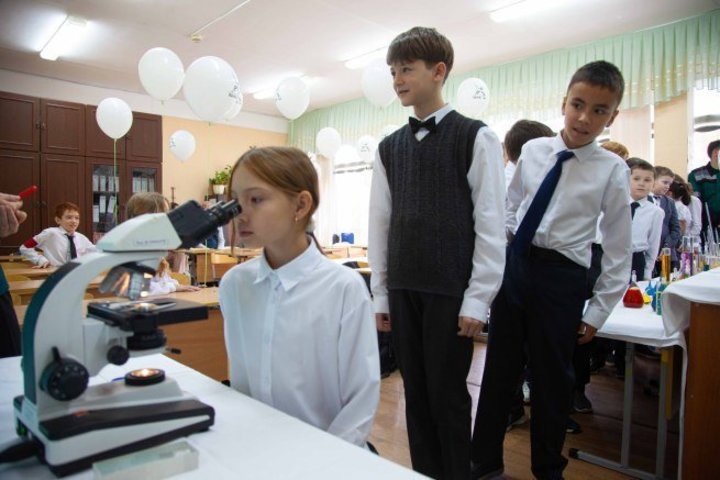
“A very interesting lesson. I especially liked watching the bacteria. I saw a tiny little thing running around in a circle. I also liked the experiment on creating chemical lemonade,” Ilya Serebryakov shared his impressions.
“I liked the experiments with toothpaste and a balloon. I remember the experiment when sunflower oil turned into lemonade with bubbles,” added Miroslava Bannikova.
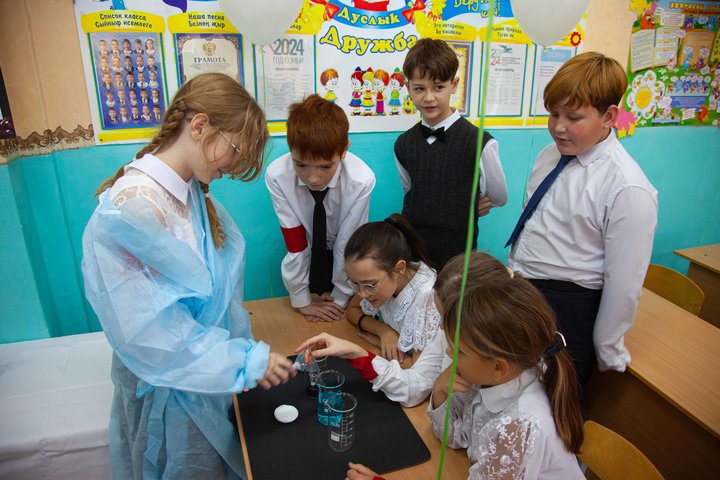
“What do we know about water” and were given the opportunity to conduct an experiment on purifying water using black coal.
Independent work of year four students
The homeroom teacher of year four Zhanna Shimina noted the benefits of environmental lessons. According to her, love for nature and a conscious attitude towards it arises if a student sees real examples of such an attitude. In order to form an individual’s environmental culture, theory alone is not enough.
“Today the children learned about the properties of water in a visual way. Many thanks to the employees of the enterprise for taking the time to come to the school. We do not have so many opportunities, such equipment, dishes and reagents to conduct such experiments. Not only the children, but also I was interested in participating in an environmental lesson. I only just now learned that water can be purified using ordinary coal,” she said with a smile.
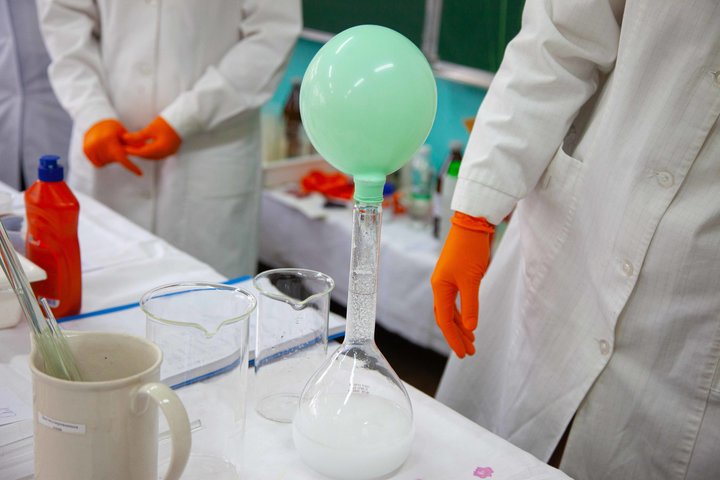
At the end of the lesson, the children received certificates of participation in the quiz and memorable gifts. And the most curious again pressed their attention to the microscope to once again plunge into the unknown world of microorganisms.
“Children from early childhood should understand that water is a valuable resource. Knowledge of how water gets into our homes, how it is purified and how it should be saved teaches children to be responsible. They begin to think about how their habits affect the environment, and strive to reduce water consumption, not to pollute water bodies,” emphasised environmental engineer Gulnur Gumerova.
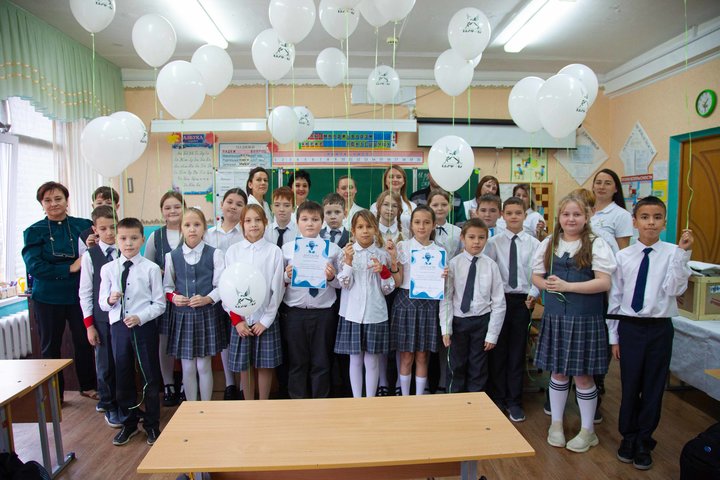
The chemical experiments in Nizhnekamsk schools do not end there. Next week, employees of the sanitary and industrial laboratory will visit the students of School No. 10 to tell them about caring for nature in an entertaining way, as well as to give the children unforgettable emotions and instil a love for science.